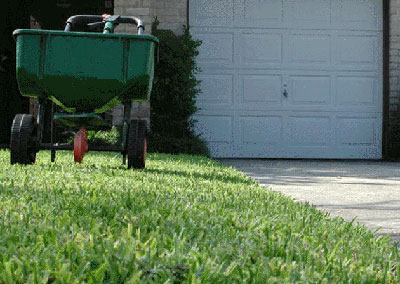A beautiful lawn needs water. However, with another dry summer looming that water may be in short supply — whether it comes from the sky or the sprinkler.
University of Georgia Cooperative Extension has a few simple steps that can help you water smarter and maintain a lush lawn regardless of the weather.
Check your irrigation system
If you’re using an irrigation system, it is a good idea to have it regularly audited by a specialist. However, you don’t need a professional to look for leaks and check to see if the nozzles are spraying in the desired direction.
Irrigation systems that leak, wet the sidewalk and driveway or deliver water when the grass does not need it waste water and money.
There are several rain sensors and moisture sensors on the market that may help improve the efficiency of your irrigation system and conserve water.
Water only when the grass needs it
A lawn needs about 1 inch of water a week. If you're not sure how much water that is, your grass will give you visual clues to know when it needs water.
If you can see your footprints when you walk across the lawn, your grass is dry and needs water. If the leaf blades fold in half vertically and start to form a tube shape, the lawn is probably thirsty. The grass color may also change slightly to a bluish green if the lawn is lacking water.
The Georgia Water Stewardship Act allows outdoor watering between 4 p.m. and 10 a.m., which is the best time to irrigate any outdoor plants. Winds are often weaker at night so the water stays where you put it. Evaporation is lower than during the middle of the day so water can absorb into the soil completely.
Watering in the afternoon or evening also allows grass blades to dry before the heat of the day. Watering during this time period mimics dew forming, so these wet conditions lessen the chances for moisture-loving diseases to develop.
Do not over fertilize
Adding too much nitrogen to a lawn can damage grass, so thinking “if a little is good, more must be better” is not wise. Excess nitrogen causes excessive growth, and as a result grass blades will need to be cut more often and will require extra water. Excessive nitrogen also leaves the grass more susceptible to some diseases and environmental stress.
Extra fertilizer also can leach from the soil during periods of heavy rain and pollute local waterways. Nitrogen travels through the ground water and can end up in streams and rivers. Not only is this unhealthy for the environment, but it’s a waste of fertilizer and money.
The best way to fertilize accurately is to test your soil and to follow the recommendations provided with the test results. The results from a soil test are specific to your lawn and will provide details on the best way to give your soil what it needs to grow healthy grass.
A UGA Extension soil test can cost as little as $6. Considering the amount of information a homeowner can get from one test, the process is well worth the effort and the cost, which is a lot less expensive than a ruined lawn or bags of wasted fertilizer. Soil tests are available through your local Extension office.
With some planning and forethought, you can be efficient with your outdoor water usage this summer and water smarter. For more information on maintaining a healthy lawn, contact your local UGA Extension office at 1-800-ASK-UGA1.








